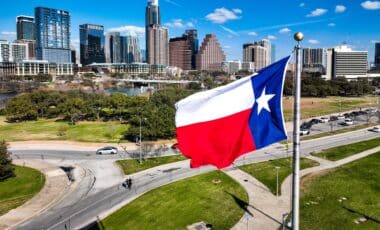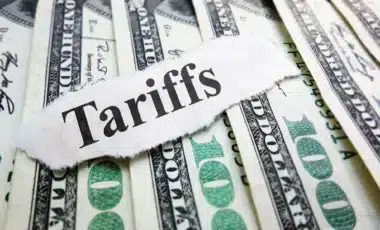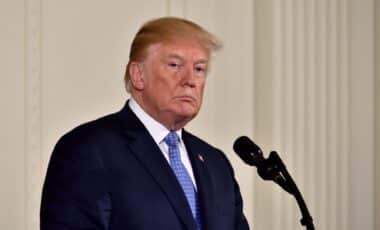As of 2022, the United States grapples with a staggering student loan debt exceeding 1.76 trillion U.S. dollars, a figure swiftly approaching the 2 trillion mark. This debt, accrued by individuals to cover costs ranging from tuition to textbooks and room and board, combines loans from both private and federally funded sources. In response to this escalating financial burden, President Biden’s administration introduced a plan for student loan “forgiveness”, aiming to offer relief to millions.
Yet, as the first federal student loan payments since the COVID-19 pandemic were due on October 1, 2023, numerous questions emerge: How is the forgiveness plan faring amidst various challenges? What obstacles are impeding its execution? Does the current form of the plan effectively address the crisis? And more importantly: is comprehensive student loan forgiveness a feasible outcome in the prevailing political and legal climate?
After Biden’s administration huge setback at the Supreme Court over the large student loan debt forgiveness project, it almost instantly announced a new plan to lower people’s debt rate. Experts suggest that borrowers might experience relief as early as this year. Yet, the scope of beneficiaries under this new plan’s aid package remains uncertain, and it could encounter legal challenges similar to those faced by President Joe Biden’s initial policy.
Comparing the Original and Revised Biden Student Loan Forgiveness Plans
Biden’s initial student loan forgiveness plan sought to aid nearly 40 million Americans. However, the president’s subsequent plan is significantly more limited following a June ruling by the justices. The original plan, encompassing over 90% of federal student loan borrowers, was considered excessively broad.
“Can the Secretary use his powers to abolish $430 billion in student loans, completely canceling loan balances for 20 million borrowers, as a pandemic winds down to its end?” Chief Justice John Roberts wrote in the majority opinion for Biden v. Nebraska.
We can’t believe the answer would be yes.
According to Luke Herrine, an assistant professor of law at the University of Alabama, the new forgiveness policy will now encompass only a small fraction of borrowers. “I think it would be easier to justify in front of a court that is skeptical of broad authority,” Herrine stated in an interview with CNBC.
Biden Administration’s Revised Student Loan Policy
Biden’s administration is focusing on assisting specific categories of borrowers, as detailed in a recent U.S. Department of Education publication. These categories include:
- Borrowers with current balances surpassing their initial loan amounts.
- Individuals who commenced repayment on their undergraduate loans over 2 decades ago.
- Students who participated in programs of uncertain value.
- Borrowers qualified for existing relief programs, such as Public Service Loan Forgiveness, who may not have applied or were unaware of these options.
- Individuals experiencing financial hardship.
Cancellation for borrowers could happen this year
In August 2022, Biden first tried to implement student debt cancellation via an executive order, promising borrowers relief within 6 weeks after completing their paperwork. However, he has now shifted to the rule-making process, a more time-consuming method involving a public comment period and additional steps, thus extending the timeline.
Mark Kantrowitz, a student loan expert, predicts that the proposed rule for the relief will be released by March, initiating a 30-day public comment period. He notes that while numerous public comments could cause delays, the final rule is anticipated to be published in the Federal Register by November. Typically, considering the regulatory change timeline, this suggests that the relief would take effect on July 1, 2025.
Further Legal Obstacles to Biden’s Student Loan Forgiveness Plan
It’s “very likely” that Republican lawsuits will emerge again, seeking to block the new relief, Kantrowitz stated. “Which could add delays. This will set up a sharp contrast between Democrats and Republicans ahead of the elections,” he said.
Presidential candidates from the Republican Party have expressed opposition to the student loan forgiveness. For instance, former New Jersey Governor Chris Christie argued that Biden does not have the authority to cancel student debt without Congress’s prior authorization. Speaking on ABC’s “This Week” in 2022, shortly after Biden unveiled his extensive debt forgiveness plan, Christie said: “He knows he’s done something that is illegal and over the top.”
The alternate for state attorneys general on the student loan negotiated rulemaking committee resigned bc Dept of Ed refused to add someone to the committee representing “those who didn’t borrow student loans.” This probably means whatever comes out we will likely see a lawsuit
— Travis Hornsby, CFA, CFP® (@StudentLoanTrav) December 22, 2023
Former President Trump’s Alignment with the Supreme Court’s Decision
Speaking at a campaign event last year, Trump remarked: “today, the Supreme Court also ruled that President Biden cannot wipe out hundreds of billions, perhaps trillions of dollars, in student loan debt, which would have been very unfair to the millions and millions of people who paid their debt through hard work and diligence; very unfair.”
Contrastingly, a Politico/Morning Consult poll indicates that voters generally support forgiving at least some student loan debt, with a 2-to-1 margin in favor. Less than a third of respondents express opposition to this policy.
In contrast, a Politico/Morning Consult poll conducted in April 2023 indicates that voters generally support forgiving at least some student loan debt, with a 2-to-1 margin in favor. Less than a third of respondents express opposition to this policy.









